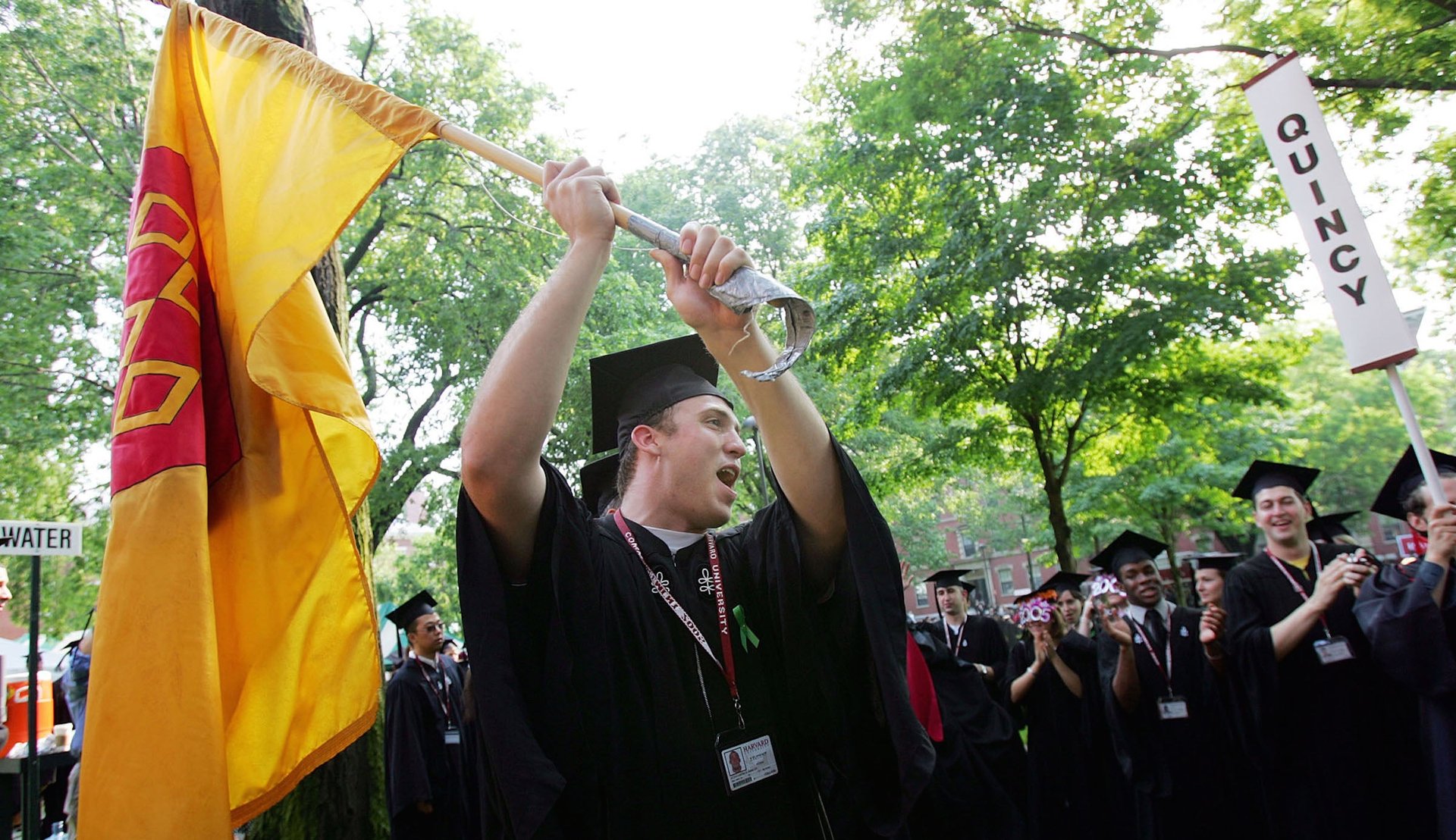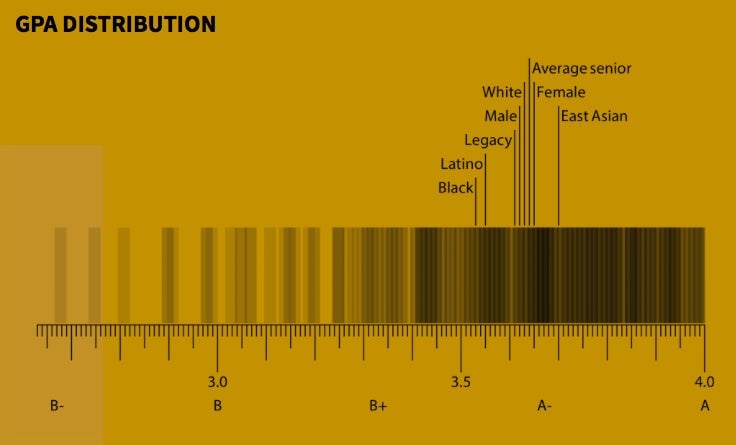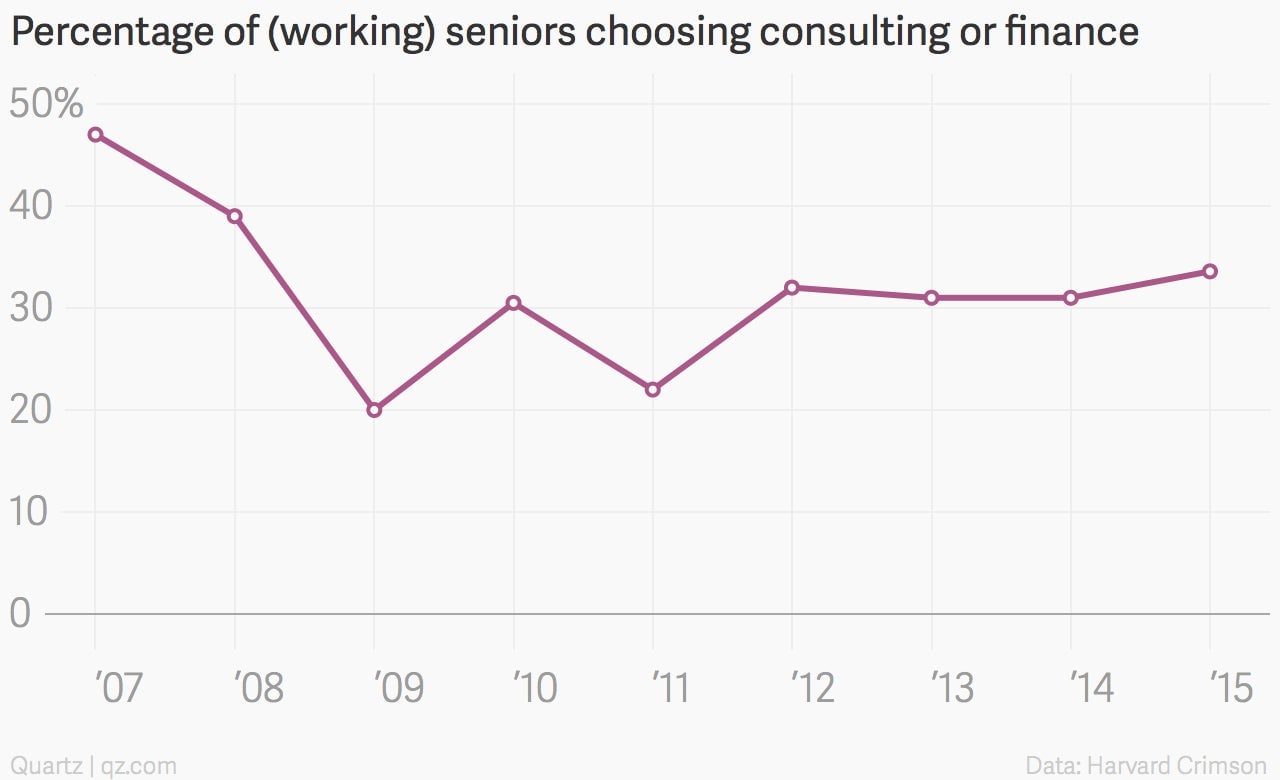Harvard grads, averaging almost an A-minus GPA, don’t think grade inflation is a problem
Grade inflation has been an enduring controversy at elite American institutions, with Wellesley College and Princeton University attempting to curtail the practice. And yet it seems to be going strong: A survey of the graduating senior class published in the Harvard Crimson revealed that the average self-reported GPA was 3.64, and more than half of the students reported a GPA above 3.67, the cutoff for an A minus average.


Grade inflation has been an enduring controversy at elite American institutions, with Wellesley College and Princeton University attempting to curtail the practice. And yet it seems to be going strong: A survey of the graduating senior class published in the Harvard Crimson revealed that the average self-reported GPA was 3.64, and more than half of the students reported a GPA above 3.67, the cutoff for an A minus average.
Asked if they thought grade inflation was a problem at Harvard, 72% said it wasn’t a problem at all, or was not much of a problem.
Here’s the GPA distribution among the students—representing about half of the graduating class—that responded to the survey, sorted by gender, race, and student type:

The survey had some other interesting data as well. The proportion of graduates heading into consulting and finance continues to recover, albeit slowly, from post-financial crisis lows:

Most see those professions as a stepping stone rather than a career. A mere 0.55% of graduates who will be working as consultants next year expect to be doing so in a decade. For finance, the number is a slightly higher 4.7%.
That recovery might not last forever, as 47% of computer science majors reported starting salaries north of of $110,000. That might explain, in part, why introductory computer science has become the most popular class at the school.